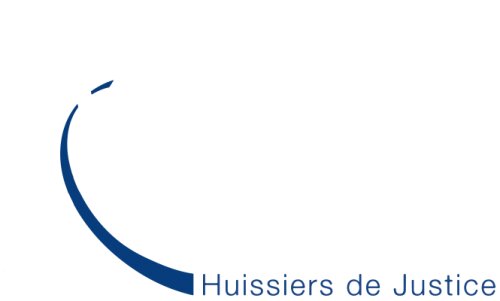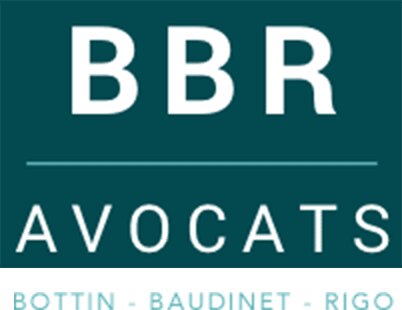Best Foreclosure Lawyers in Liège
Share your needs with us, get contacted by law firms.
Free. Takes 2 min.
Free Guide to Hiring a Real Estate Lawyer
List of the best lawyers in Liège, Belgium
About Foreclosure Law in Liège, Belgium
Foreclosure is a legal process used by creditors, often banks or mortgage lenders, to recover the balance of a loan from a borrower who has stopped making payments. In Liège, Belgium, foreclosure usually involves the forced sale of real estate, such as a family home or commercial property. This process is governed by both national Belgian laws and local judicial procedures. When a homeowner defaults on their mortgage or secured loan, the lender may ask the court for authorization to sell the property at public auction in order to satisfy the outstanding debt. The foreclosure process is carried out under judicial supervision to ensure that the borrower’s rights are protected throughout.
Why You May Need a Lawyer
Legal representation is highly recommended for anyone involved in a foreclosure process, whether you are a homeowner, lender, or a third party with an interest in the property. Common situations where legal help is needed include:
- You have received a notice of default from your lender and are unsure of your rights or options.
- You want to explore avenues to prevent foreclosure, such as renegotiation, mediation, or restructuring your debt.
- You are uncertain about the legal procedures or deadlines involved in the foreclosure process.
- You need to challenge the creditor’s claim, for example, if you believe you do not owe the alleged debt, or there was a procedural error.
- You wish to participate in the auction or purchase foreclosed property and require guidance on how to proceed.
- You want to ensure that your rights as a tenant or co-owner are respected during the process.
Local Laws Overview
Foreclosure in Liège is subject to national Belgian law, particularly the Judicial Code and Civil Code. Some key features include:
- Foreclosure must be approved by a court, usually the Tribunal de Première Instance (Court of First Instance) in Liège.
- The lender needs to obtain an enforceable court order before initiating the public auction of the property.
- The borrower is entitled to notification and has the right to object or present a defense in court.
- Strict timelines must be followed for notifications, publication of auction details, and conducting the auction itself.
- After the sale, any surplus funds (after creditors are paid) are returned to the former owner, while outstanding debts may still remain in certain situations.
- Alternative solutions such as voluntary sale, debt restructuring, or mediation are sometimes pursued before formal foreclosure.
- Special protections are in place for certain vulnerable populations, such as families or those in financial hardship.
Frequently Asked Questions
What is foreclosure in Belgium?
Foreclosure is a judicial procedure whereby a creditor requests the sale of mortgaged property, typically following default on a loan, to recover the unpaid debt.
Can I stop a foreclosure once it has started?
Yes, in many cases, foreclosure can be stopped or delayed if you act quickly. Solutions may include negotiating with the lender, paying the arrears, applying for debt mediation, or presenting valid objections in court.
What rights do I have as a homeowner facing foreclosure?
You have the right to be notified of the foreclosure, to contest the claim in court, to propose repayment plans, and to receive any remaining funds after your debts are paid from the sale proceeds.
How long does the foreclosure process take in Liège?
The duration varies based on circumstances, but the process generally takes several months from the first notice to the public sale, due to mandatory waiting periods and procedural requirements.
Are there alternatives to foreclosure?
Yes, alternatives include voluntary sale of the property, debt restructuring with the lender, mediation through a debt mediator, or seeking social assistance if financial hardship is involved.
Who conducts the foreclosed property auction?
The auction is conducted under the supervision of the local court bailiff, with oversight from the Tribunal de Première Instance in Liège.
Can I buy my own home back at the auction?
In principle, you or a third party may participate in the auction to repurchase the property, but you must meet all legal and financial requirements set by the court.
What happens if the sale does not cover my entire debt?
If the sale price does not cover the outstanding debt, you may still owe the remaining balance to the lender unless an agreement is reached or bankruptcy is declared.
Is it possible to be evicted immediately after foreclosure?
Eviction is not immediate. After the auction, new ownership must be transferred and a separate eviction process may be initiated if the former owner remains in the property, allowing some time to arrange alternative housing.
How can I get legal aid for foreclosure matters?
If you meet certain income criteria, you may be eligible for free or subsidized legal aid (pro deo assistance) from the Belgian legal aid system. Local Bar Associations can provide further information.
Additional Resources
For more information or assistance regarding foreclosure, the following organizations in Liège and Belgium can be particularly helpful:
- Tribunal de Première Instance de Liège - oversees foreclosure and related procedures
- Ordre des Barreaux Francophones et Germanophone de Belgique (OBFG) - provides lawyer directories and legal aid information
- CAW (Centrum Algemeen Welzijnswerk) - offers social services and support
- Public Center for Social Welfare (CPAS/OCMW) - offers financial and housing assistance
- Local mediators or conciliation services - for debt mediation and negotiation
- National Institute for Debt Mediation (Institut National du Crédit aux Particuliers) - supports individuals in serious debt situations
Next Steps
If you are facing foreclosure or wish to protect your interests during a foreclosure procedure in Liège, Belgium, consider taking the following steps:
- Carefully review any communications or legal documents from your lender or the court.
- Contact a lawyer experienced in Belgian property and foreclosure law for a professional assessment of your case.
- Explore your rights and available alternatives as early as possible, including negotiation or mediation.
- If you are in financial difficulty, consult with the Public Center for Social Welfare (CPAS/OCMW) or a legal aid office in your municipality.
- Keep records of all communications, payments, and legal notices.
A timely response and informed guidance can make a significant difference in protecting your property or minimizing financial losses. Do not hesitate to seek qualified legal advice tailored to your individual situation.
Lawzana helps you find the best lawyers and law firms in Liège through a curated and pre-screened list of qualified legal professionals. Our platform offers rankings and detailed profiles of attorneys and law firms, allowing you to compare based on practice areas, including Foreclosure, experience, and client feedback.
Each profile includes a description of the firm's areas of practice, client reviews, team members and partners, year of establishment, spoken languages, office locations, contact information, social media presence, and any published articles or resources. Most firms on our platform speak English and are experienced in both local and international legal matters.
Get a quote from top-rated law firms in Liège, Belgium — quickly, securely, and without unnecessary hassle.
Disclaimer:
The information provided on this page is for general informational purposes only and does not constitute legal advice. While we strive to ensure the accuracy and relevance of the content, legal information may change over time, and interpretations of the law can vary. You should always consult with a qualified legal professional for advice specific to your situation.
We disclaim all liability for actions taken or not taken based on the content of this page. If you believe any information is incorrect or outdated, please contact us, and we will review and update it where appropriate.
















